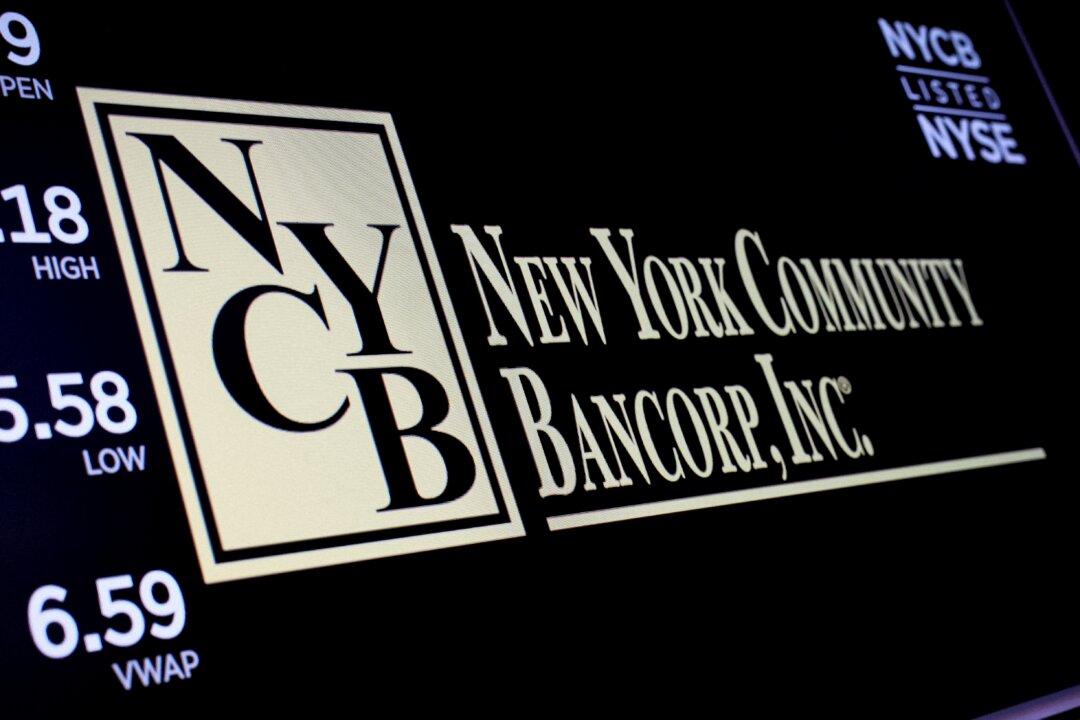The news that troubled New York Community Bancorp (NYCB) has secured the help of powerful investment firms and appointed a new CEO brought relief to many in the markets who feared that the financial institution might go the way of Silicon Valley Bank, Signature Bank, Credit Suisse, and other once-powerful players that have collapsed in recent years.
NYCB announced that Liberty Strategic Capital, Hudson Bay Capital, Citadel Global Equities, and other investment firms had agreed to commit to a total equity investment of $1 billion. After news of the deal broke, NYCB’s shares, which had fallen by double digits in the days prior, rebounded by nearly 30 percent.





